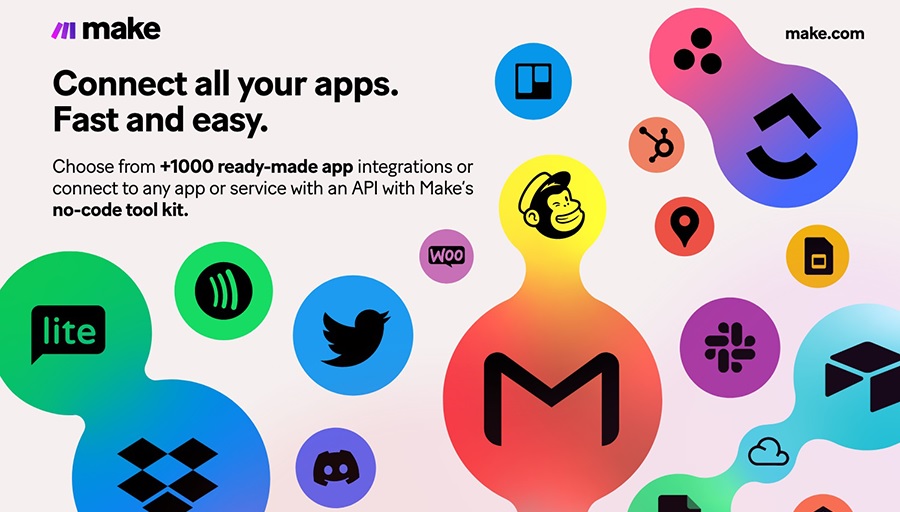
Every small business owner knows the grind of repetitive tasks. Answering the same customer questions, filing invoices, scheduling appointments, and managing inventory can feel like an endless cycle. While these tasks are necessary, they often steal time and energy that could be better spent on growing the business. Fortunately, AI automation is changing the story. By automating repetitive processes, entrepreneurs can transform what was once a burden into an opportunity for growth, freeing up resources to focus on strategy, innovation, and customer relationships.
Contents
Why Repetitive Tasks Hold Businesses Back
Repetition creates drag on business operations in several ways:
- Time Drain: Hours spent on tasks like data entry or responding to FAQs are hours not spent on sales or innovation.
- Error Risk: The monotony of repetitive work increases the chance of mistakes, which can cost time and money to fix.
- Employee Burnout: Staff bogged down with routine work often feel disengaged, leading to turnover and lower productivity.
- Missed Opportunities: When energy is tied up in day-to-day admin, businesses may overlook new markets, partnerships, or growth strategies.
AI automation provides a solution, turning this drag into a springboard for progress.
How AI Automation Transforms Repetitive Tasks
AI-driven tools are not just about saving time, they actively create opportunities for growth. Here’s how they make the shift possible:
1. Automating Customer Inquiries
Chatbots and virtual assistants handle routine customer service questions like order status, store hours, or return policies. This ensures customers get instant answers while staff focus on more complex service needs or upselling opportunities.
2. Streamlining Financial Processes
AI tools generate invoices, track expenses, and send payment reminders automatically. This reduces late payments, strengthens cash flow, and gives entrepreneurs clearer financial insights for planning growth.
3. Scheduling and Coordination
AI scheduling systems eliminate the back-and-forth of setting appointments. By syncing calendars and sending reminders, they minimize no-shows and allow businesses to serve more clients without extra administrative overhead.
4. Managing Inventory
AI tracks stock levels, predicts demand, and automates reordering. This reduces waste, prevents shortages, and ensures businesses are always ready to meet customer demand – critical for scaling operations smoothly.
5. Marketing Personalization
AI systems segment customers and deliver personalized campaigns automatically. Instead of sending generic promotions, businesses can target offers that increase sales and encourage repeat purchases.
Growth Opportunities Unlocked by Automation
When repetitive tasks are automated, small businesses gain the bandwidth to pursue new opportunities. Benefits include:
1. More Time for Strategy
With day-to-day processes handled, entrepreneurs can finally focus on long-term planning. Whether that means refining business models or exploring new revenue streams, freed-up time becomes a strategic advantage.
2. Enhanced Customer Relationships
Instead of being bogged down by routine support, staff can dedicate time to personalized outreach and relationship building, creating loyal customers who drive repeat business.
3. Faster Innovation
Innovation requires experimentation, and experimentation requires time. AI automation clears schedules, making space for testing new products, services, or marketing approaches.
4. Employee Development
When repetitive work is reduced, employees can focus on tasks that build their skills and contribute more meaningfully to business success. This boosts morale and reduces turnover.
5. Scaling Without Growing Overhead
By automating core processes, small businesses can serve more customers or manage larger inventories without hiring additional staff, making growth more sustainable.
Overcoming Concerns About Automation
Some entrepreneurs hesitate to automate repetitive tasks because of misconceptions. Let’s address a few:
“Automation will make my business feel impersonal.”
On the contrary, automation handles the routine so humans can focus on genuine connections. Customers benefit from faster responses and more personalized attention where it matters most.
“It’s too expensive for small businesses.”
AI automation tools have become increasingly affordable, with subscription models tailored for smaller budgets. The return on investment often comes quickly in saved time and reduced labor costs.
“It’s complicated to set up.”
Modern AI platforms are designed for ease of use, offering templates, integrations, and support that make setup accessible for non-technical users.
Steps to Turn Tasks Into Opportunities
Here’s how entrepreneurs can start using AI automation to transform repetitive tasks into opportunities for growth:
1. Identify Repetitive Work
List the tasks that consume the most time and add the least value, such as scheduling, invoicing, or customer FAQs.
2. Choose the Right Tools
Select platforms that integrate with your existing systems. Prioritize solutions that are scalable and user-friendly.
3. Start Small
Pick one or two workflows to automate first. Focus on areas with clear, measurable outcomes so you can quickly see results.
4. Track Results
Measure hours saved, error reductions, or increased sales. Use this data to justify further investment in automation.
5. Expand and Innovate
As automation proves effective, expand into other areas and redirect saved time into innovation, strategy, and customer engagement.
Real-World Examples
Here are some small businesses turning repetitive tasks into opportunities:
- A boutique clothing shop automated inventory tracking, reducing errors and freeing staff to focus on styling customers and growing online sales.
- A consultancy automated invoicing and payment reminders, leading to faster payments and more time for client acquisition.
- A salon implemented AI scheduling, cutting no-shows by 25% and allowing staff to spend more time on customer care.
The Future of Repetitive Work
Repetition no longer needs to be a burden. With AI automation, small businesses can turn routine tasks into opportunities for efficiency, growth, and innovation. The future belongs to entrepreneurs who see automation not as a threat, but as a tool for unlocking their full potential. By embracing this shift, small businesses can reclaim their time and use it to build stronger, smarter, and more successful enterprises.

